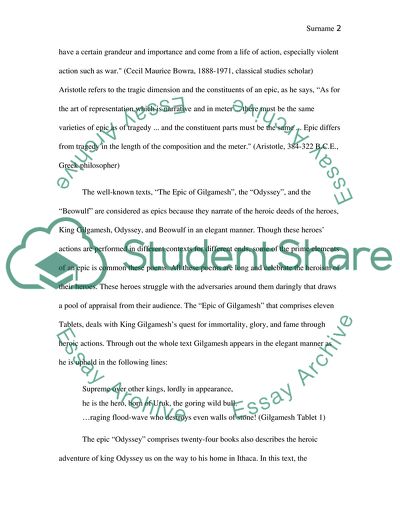Cite this document
(Epic in Gilgamesh, the Odyssey, and Beowulf: An Evaluation Essay Example | Topics and Well Written Essays - 2000 words, n.d.)
Epic in Gilgamesh, the Odyssey, and Beowulf: An Evaluation Essay Example | Topics and Well Written Essays - 2000 words. https://studentshare.org/literature/1723222-epic-in-gilgamesh-the-odyssey-and-beowulf
Epic in Gilgamesh, the Odyssey, and Beowulf: An Evaluation Essay Example | Topics and Well Written Essays - 2000 words. https://studentshare.org/literature/1723222-epic-in-gilgamesh-the-odyssey-and-beowulf
(Epic in Gilgamesh, the Odyssey, and Beowulf: An Evaluation Essay Example | Topics and Well Written Essays - 2000 Words)
Epic in Gilgamesh, the Odyssey, and Beowulf: An Evaluation Essay Example | Topics and Well Written Essays - 2000 Words. https://studentshare.org/literature/1723222-epic-in-gilgamesh-the-odyssey-and-beowulf.
Epic in Gilgamesh, the Odyssey, and Beowulf: An Evaluation Essay Example | Topics and Well Written Essays - 2000 Words. https://studentshare.org/literature/1723222-epic-in-gilgamesh-the-odyssey-and-beowulf.
“Epic in Gilgamesh, the Odyssey, and Beowulf: An Evaluation Essay Example | Topics and Well Written Essays - 2000 Words”. https://studentshare.org/literature/1723222-epic-in-gilgamesh-the-odyssey-and-beowulf.


